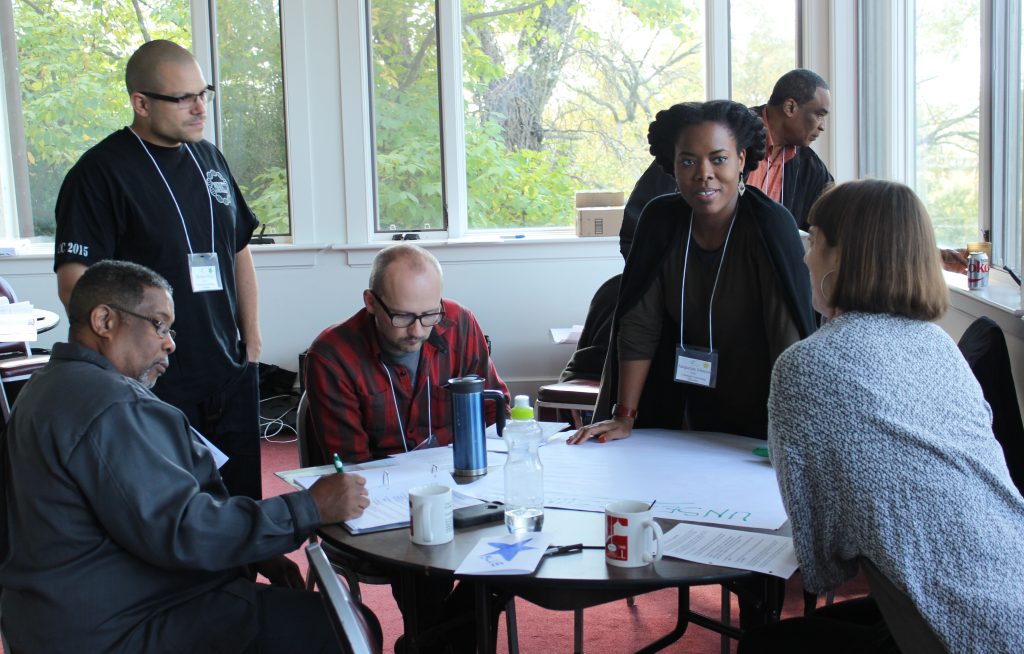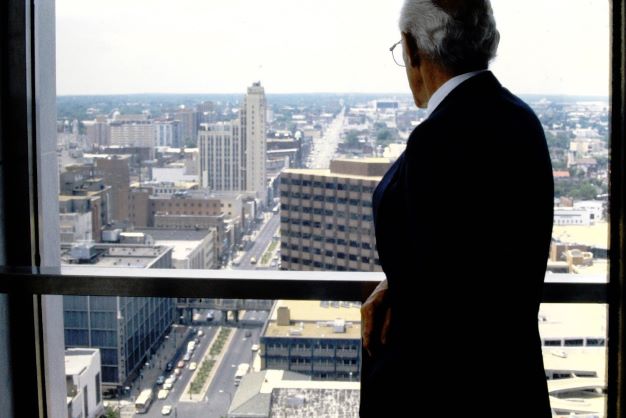When my siblings and I were children in the UK, one of our favorite people was Paul Petrocokino. He was a tall, very gifted musician, who was a passionate promoter of Handel’s music and composed in his style. Paul, whose father was Greek, and his American wife, owned a 17th century English country manor with extensive grounds in Hertfordshire where we spent many happy summer days. Paul had a great sense of humor, he loved nature, and he loved reading the clouds. He might look up at the sky and say, “It will rain at 3:15 this afternoon” and he was often correct. On one occasion when the BBC gave a particularly inaccurate forecast, he wrote a polite letter thanking them for their service and adding, “Might I suggest that you occasionally look out the window?” He received an equally polite response: “Unfortunately we do not have any windows.”
I am reminded of this story when we are bombarded by predictions from “experts” on television and social media – predictions often based on the latest polls. But polls have become increasingly untrustworthy. For example, they all predicted dire losses for the Democrats in the 2022 midterms; but in the event, Biden was more successful than any president in recent decades.
For the past year we’ve been told that we are heading into a recession, yet unemployment in this country continues to hit record lows, sports stadiums are packed with people who pay hundreds of dollars for tickets, airline flights are full to capacity, and Ticketmaster crashed when fans scrambled to pay thousands of dollars to see Taylor Swift. Pollsters tell us that most Americans believe the economy is terrible, but a large percentage of those responding to surveys say their own finances are in quite good shape.
Polls tell us that parents are very worried about our schools, but polls also indicate that most parents are quite satisfied with their own school. The media focuses on deadlock in Congress, but there is often remarkably good collaboration at the community level.
I am not downplaying the very real challenges we face and the severe difficulties and intense pain that many are experiencing. But polls may be heavily influenced by what people are told they are supposed to believe. Constant focus on negative news becomes a self-fulfilling prophecy. The nightly network news is usually a sequence of alarming headlines and reports. Then it closes with one hopeful or inspiring story as if this were the exception. What if the news were to start with coverage of some of the significant and constructive events of which there are thousands every day?
Watch any group of people waiting for a bus, a train or plane. Everyone is glued to their phones, never exchanging a word with a fellow traveler. People walk in a beautiful parks reading their phones. Tourists visiting scenic spots take selfies. Social media tells us how we should look, how to behave and what to believe. An unprecedented percentage of American teenagers, especially girls, report feelings of anxiety, depression and even suicide. There are many contributing factors, but the timing of this mental health crisis correlates with the smartphone’s increasing substitution for in-person social interaction.
How can we create more opportunities to build a sense of community? My wife and I live in an apartment building designed as an “active 55+” community. Residents have come here to Austin, Texas, from all over the country, many of them – like us – to be near grandchildren. We have a monthly program, “Stories From around the World,” when residents share some of their life experiences. We have educators, medical professionals, former corporate executives, an editor, a poet who grew up on a tiny ranch house on the Montana prairie, and an athlete who started running at 59 and has completed half marathons in every state in the Union. One neighbor is a former music professor at the University of Texas. Every week he invites highly talented students to perform for us. So many remarkable life stories in just one apartment building!
Recently, two women shared their experiences of living with husbands who developed brain disease. Another neighbor wrote to all the residents thanking them for the kindness they had shown through her daughter’s illness and end of life. “I just want you to know that people here are thoughtful and caring and have offered and given so much love and support that I know firsthand that you do not have to be alone or feel alone.”

Community Trustbuilding Fellowship, Richmond, VA
In every town and city there are people of courage and vision who are building human connections of trust and collaboration. When we worked for racial healing with colleagues in Richmond, Virginia we called the movement Hope in the Cities, hope in the cities, not for the cities, because we believed the seeds for transformative change were already present.
James Fallows, a writer at the Atlantic magazine, and his wife, took three years to travel 100,000 miles “into the heart of America” in a single-engined plane to visit towns and cities where people are taking the initiative to create new opportunities and build hope. In their book, Our Towns, they write about some of these places and tell stories that are seldom told by the media. Many of these places have experienced economic decline, but as the Fallows remarks about one city, “The surprise was how wide a range of people, of different generations and races and political outlooks, believed that the city was on the upswing, and that their own efforts could help speed that trend.”
If more of us got to know our neighbors, or discovered people who are working to make a positive difference in our communities, and found ways to encourage them and tell their stories, we might have a very different view of America. Yes, this country faces big challenges, challenges that demand the very best of us. They are challenges that require us to build relationships of trust. We have to take time to stop, to listen and to really see. You never know what unexpected gifts of imagination and courage are present in the people around us just waiting to be called on. We could measure trust based on lived experience.
So let’s occasionally put down our phones, turn off the TV or radio, and look out of the window. We might be surprised at what we find.
